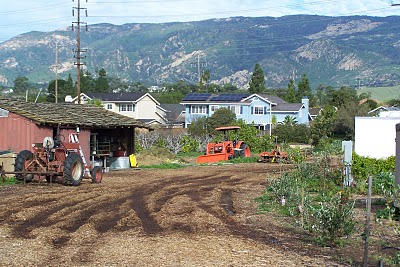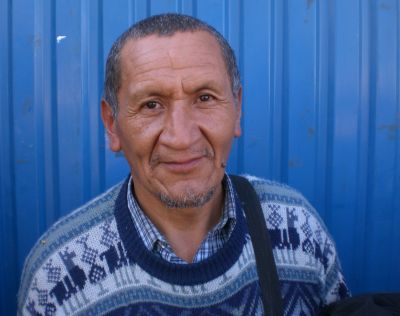Cochabamba, Bolivia — The voice of Evo Morales cut through the autumn heat, no problem: “The principle causes of climate change are from capitalism,” the Bolivian president told attendees at his country’s alternative climate summit, the first World People’s Conference on Climate Change and the Rights of Mother Earth. It was time, said Morales, for the people’s voices to be heard.
The people attending the inaugural ceremonies on Tuesday were mostly listening — and sweating. Like many developing nations, Bolivia is already feeling the ill effects of a changing climate, including the dramatically retreating glaciers across the Andes. So I tracked down some of the Bolivian people to hear what they really thought about their country’s alt climate summit, the significance of Earth Day, and the need for international action on climate change.
Alejandro Perez*, 27
Environmental engineer and educator
Cochabamba, Bolivia
“The ‘environmental movement’ is very new here; it’s no more than 10 years old. But now everyone knows about Bolivia and its environmental initiatives. For Bolivia, this [conference] is a great opportunity that I believe the government is doing that not even other COPs [U.N. climate meetings] have tried to do. It’s trying to put everyone’s words in the proposals.
“To me, as a Bolivian, this is something that you see once in your lifetime. I think Evo Morales is connecting something that was always a belief of indigenous people with what Western people believe about the environment. I hope these ideas and proposals are going to be taken into consideration on a higher level.”
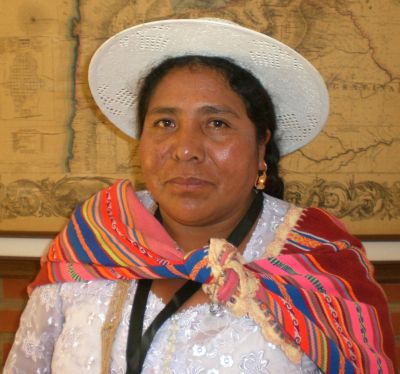 Photo: Ashley BraunMarcelina Chavez, 52
Photo: Ashley BraunMarcelina Chavez, 52
Miner, farmer, and senator of Cochabamba
Cochabamba, Bolivia (originally from Icoya, Bolivia)
“For me, Earth Day is about respecting the environment. On Earth Day, we are going to plant 2,000 trees — by the president of Bolivia and by presidents of other countries and organizations, and we hope that this will be a seed for change because all days should be treated like Earth Day.
“Considering that I’m older and an indigenous person, my main goal [for the summit] is to make this process of minimizing our effects on the environment happen for real.”
Kelly Blynn, 25
350.org Latin America coordinator
Mexico City, Mexico (originally from Pennsylvania)
“This conference has real potential for civil society and governments to work together in a very concrete way. There was so much tension at Copenhagen. Everyone here is so positive and wants to find solutions, as opposed to some parties at Copenhagen who wanted things to fail. I see a lot of diverse perspectives here and lots of young people who are psyched to see their government taking the lead.”
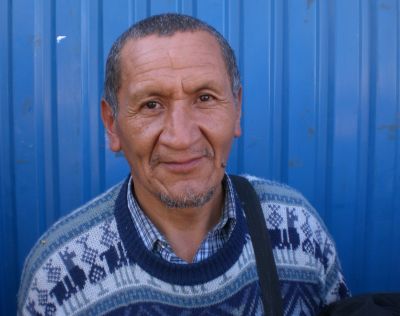 Photo: Ashley BraunGuedoi Palma, 59
Photo: Ashley BraunGuedoi Palma, 59
Engineer
Cuzco, Peru
“Everyone here has the same weight and the same chance to participate in the solutions. I think this day, Earth Day, is important because the population needs to recognize the importance of Mother Earth. We have to have pride in the Earth.
“Every participant should have a voice, but we have to keep working. Not only talking but also taking care of the trees.”
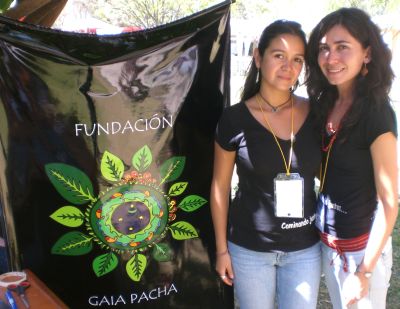 Alejandra Kolbe Arce, left, and Helga Gruberg, rightPhoto: Ashley BraunHelga Gruberg, 27, and Alejandra Kolbe Arce, 27
Alejandra Kolbe Arce, left, and Helga Gruberg, rightPhoto: Ashley BraunHelga Gruberg, 27, and Alejandra Kolbe Arce, 27
Gaia Pacha Foundation
Cochabamba, Bolivia
Gruberg:
“I really hope we stop talking so much. There’s no time to wait for COP16 or COP17 because so many people [and their livelihoods] are hurt from climate change, for example, with their harvests. People are starving. It’s no joke.
“We had a pre-conference in Bolivia a week or two before, and indigenous Bolivian groups helped make a proposal for this country [to be brought to this international summit].”
Kolbe Arce:
“Earth Day, for us, is really big because we move in environmental circles, but a lot of people don’t know about it.
“I think this conference is really important because the people can really talk, not just the government or high-level officials, and because it’s an alternative to the COP process. The important thing is not only the scientific facts but also people telling their stories. The Working Groups here [composed of various international representatives] give people the opportunity to talk more openly.
“Right now, we should hope that people not in Annex I [developed nations] can get together and work with one idea, instead of fighting all the time.”
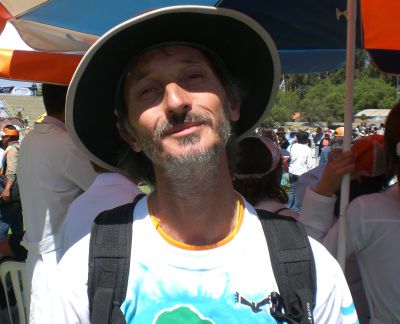 Photo: Ashley BraunFernando Slogo, 53
Photo: Ashley BraunFernando Slogo, 53
Ongamira Despierta! (Wake up Ongamira!)
Valle de Ongamira, Argentina
“It’s important that the conference is in Bolivia because Evo Morales and Bolivia can be a model. This is a start that can become bigger and can create connections.
“I spent some time in Europe, and we have to analyze their science and their techniques and use our heads, but change is what comes from the heart … with changing the way you and I think.”
*Update: Name changed for security reasons.
